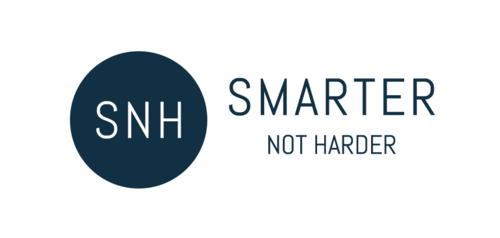
Empowering England Rugby to thrive -because even champions need to adapt to succeed.
As England Rugby transitioned to remote and then hybrid working, they faced a diverse workforce with office-based workers, community coaches, sports specialists, and other conventional business functions. To address the challenges, England Rugby sought to implement new guiding principles aimed at improving teamworking, productivity, and effectiveness in this new work environment.
The Challenge
England Rugby recognised the importance of aligning their new ways of working with their organisational values and taking into consideration the skills and requirements of their diverse workforce. It was crucial for them to ensure that their approach to remote and hybrid working would be inclusive and supportive of all team members, regardless of their roles or functions within the organisation.
They sought to optimise their team's time and energy by reducing the time spent on meetings and email. By prioritising key objectives and streamlining administrative tasks, they aimed to improve productivity and boost morale among their team members, ultimately leading to increased job satisfaction and overall success for the organisation.
The Solution
SNH collaborated with England Rugby's Learning & Development team to implement their Effective Hybrid Working practice, customised for their entire workforce. One element of the programme centered on tools and techniques for enhancing personal productivity in the hybrid workplace, where employees have the flexibility to work from anywhere. The second element of the programme focused on smart ways to manage email, meetings, and calendars effectively.
These practices utilised a blended design that included surveys, workshops, videos, workbooks, online tools, and follow-up coaching to provide comprehensive and practical learning experiences for the team members.
The Outcome
The programmes within the Effective Hybrid Working practice were met with overwhelming demand, with attendance from various levels of the organisation, including board members and field-based community staff. Participants found the programmes to be relevant and valuable, with a high recommendation rate.
In the follow-up coaching sessions, many participants reported saving significant time through productivity gains, with an average of one to three days per month. Furthermore, participants noted improvements in their personal well-being and work/life balance as a result of implementing the tools and techniques learned.
Want to find out more? Fill out the form to arrange a consultation
You may also be interested in
Drowning in a sea of extra tasks?
See how BT’s billing function turned the tide and achieved time-savings of 20%
Breathing space for the Brexit administrators
How the government’s Business, Energy and Industrial Strategy department tackled the productivity puzzle brought about by Brexit
The Productivity Puzzle
We hear about the need to ‘solve the Productivity Puzzle’ but increased productivity can mean different things to different people










